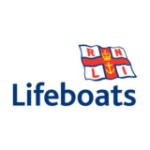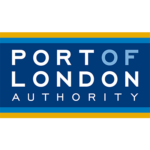Early starts? Unsocial hours? Travel a lot? Sounds like the military? Well no it’s the superyacht industry. If you are just about to leave or have just left the Forces then a career in superyachts might be something for you
Before you will be considered for a job on a yacht you must have the 4 basic safety courses (STCW “Standards of Training, Certification & Watchkeeping 1995) which are:
Basic first aid, 2 day firefighting, Basic sea survival & Personal Safety & Social Responsibilities. There are numerous centres around the country (and abroad) which will offer the 4 courses over 5 days. You will also need an ENG 1 Seafarer Medical Certificate which is valid for 2 years.
On your CV you will need to include any seafaring experience that you have, this may include any sailing that you have done in the military within adventure training or in your spare time.
You need to highlight your skills in which department that you wish to work in such as on deck, engineering, catering, telecomms or owner/ guest service but be aware and check first whether your military qualifications are transferable to yachts or whether you have to do additional courses e.g. engineer in the RN to engineer on a yacht. On your CV you will need to have a smart head & shoulders photo (no photos of you in the pub or looking too serious!).
A lot of military skills are quite easily transferable to the superyacht industry such as punctuality, presentation, ability to work under pressure, long hours, security awareness and ability to take orders which employers all look for in candidates.
Travel goes without saying really as owners and guests like to be in the nice places of the world. Most yachts will spend the summer around the Mediterranean and go over to the Caribbean for the winter. Having said that more and more yachts now spend the winter in the Indian Ocean and Thailand and it’s not unheard of for yachts to go literally around the world. Some yachts, though, will spend the winter moored in the Mediterranean.
The starting pay on a yacht will normally start at around £2000 per month for a deckhand or stewardess and can end up at over £5,000 per month as captain on a small yacht to over £10,000 per month as a captain on a larger yacht. The more technical positions such as engineer or electronics officer will obviously earn a higher starting salary.
A deckhand’s general duties include driving the yachts tenders (speedboats), launching and retrieving jetskis, going diving with the guests, line handling when docking the vessel and ensuring the yachts is immaculate at all times.
A stewardess will deal a lot with the owners/guests and their role involves working in the interior ensuring that the owners/guests needs are all catered for and involves silver service, laundry and cleaning.
An engineer’s role onboard is to ensure that all the yacht systems are functioning correctly from the main engines to the AV systems onboard.
There are other positions such as electronics officers on larger yachts whose responsibility is the AV/IT systems onboard, helicopter pilots, nannies, security personnel, submarine pilots, etc.
A yacht of 35m will normally run with a crew of 6/7 and the larger yachts can have up to 60 crew onboard. Safety though is always the number 1 priority when working on any vessel so a safety orientated approach to your work is essential.
Basic leave for a starting position on a lot of yachts will be 1 month a year but a lot of yachts will offer better leave such as 5 months onboard to 1 months leave. More yachts now offer rotation (2 months on to 2 months off) for the more senior positions. Some yachts offer a flight allowance as well as a yearly bonus. If a yacht charters out to guests (guests pay for the hire of the yacht) then there are generous ‘tips’ on offer as well.
Food and accommodation is provided for free as are all toiletries onboard and nearly all yachts will have a generous medical cover. The food will almost always be to a high standard as the food budget is generally very good.
Of course there are drawbacks of working on a yacht as there are with any job. You will normally have to share a cabin with someone else and live in the confines of the crew quarters and share it with the rest of the crew. An ability to get on with others is essential to work in this industry. As a lot of yachts are always on the move then there is little opportunity to have a base anywhere.
Whilst onboard you are on call 24/7 so if the weather picks up during the night you will have to deal with it and the same goes any alarms that sound during the night. Whilst the owner/guests are onboard the hours can be quite long and arduous and 16 hour days are not unheard of (sometimes more!).
But overall yachting offers one of the best careers around. There is the good pay, job variety & travel. You can start young or later on in life, it is not unheard of for ex-military to start in superyachts after 22 years military service.
Here is a list of websites with further information on the superyacht industry:
en.wikipedia.org/wiki/Luxury_yacht
www.boatinternational.com/yachts/
Improve Your Prospects
The superyacht industry is driven by exemplary customer service and superyacht owners and their guests expect a truly first rate experience. Delivering on this expectation requires elite professional crews who are trained to the highest possible standard.
Having been in the HM Forces you will have gained many of the key attributes required i.e. discipline, commitment, integrity and respect for others. Warsash Superyacht Academy is the world’s leading superyacht training provider and we have helped hundreds of ex HM Forces personnel to move into the superyacht industry and other maritime sectors.
Many of your skills and sea time gained during your military career will be recognised in civilian life. For HM Forces personnel wishing to pursue a career as a Deck Officer or Chief Engineer on a superyacht, the best advice is to write to the Maritime and Coastguard Agency first to obtain a Letter of Initial Assessment. That letter sets out the exemptions given to the candidate based on his/her experience in the HM Forces. Warsash Superyacht Academy can advise you on how to obtain the Letter of Initial Assessment and assist you with its ‘interpretation’ which can sometimes be a daunting task.
Most yacht courses are one week duration. Many of these courses are ELC funded (ELCAS No. 1876).
Warsash’s teaching faculty is one of the most respected in the world attracting some of the most experienced deck, engineer and specialist interior crew trainers. We also work very closely with recruitment agencies to assist you in gaining your first superyacht employment.
www.warsashsuperyachtacademy.com
















